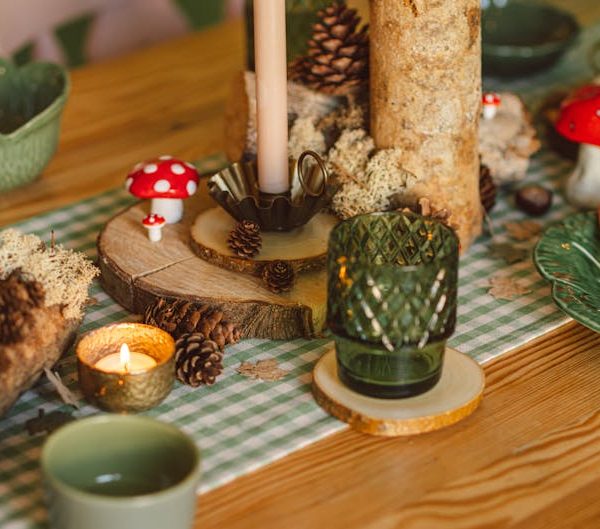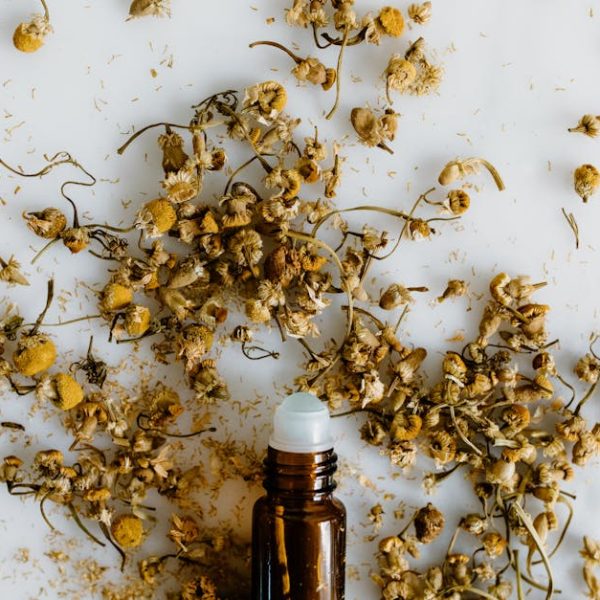Herbs – fresh or dried – hold a significant place in any culinary pursuit. Both variants impart distinct flavors and aromas, transforming dishes from bland to brilliant. This article delves into the key differences between fresh and dried herbs, based on their taste, nutrient content, usage, longevity, availability, and cost.
Comparing Taste of Fresh and Dried Herbs
When it comes to taste, fresh and dried herbs couldn’t be more distinct. Fresh herbs, with their vibrant leaves and bountiful aroma, bring an invigorating twist to any dish. They offer a robust and bright flavor that can instantly enhance a meal, making them a popular choice for garnishing and last-minute seasonings.
Dried herbs, on the other hand, boast a more concentrated and intense flavor, ideal for dishes that require longer cooking times. The prolonged heat exposure releases their dehydrated aromatic compounds, infusing dishes with a depth of flavor that’s both rich and wholesome.
Here’s a quick comparison of the typical flavors of some popular herbs in their fresh and dried forms:
| Herb | Fresh | Dried |
|---|---|---|
| Basil | Bright, peppery | Earthy, sweet |
| Parsley | Grassy, slightly bitter | Mild, subdued |
| Thyme | Delicate, floral | Strong, bracing |
| Rosemary | Naturally resinous | Intense, piney |
👉 Pro Tip: While using fresh herbs, toss them in towards the end of cooking to keep their flavors intact. For dried herbs, incorporate them at the beginning so they have ample time to rehydrate and release their essence.
The Difference in Nutrient Content
A common concern when switching between fresh and dried herbs is the potential loss of nutrients. While the drying process does reduce water content, it retains a substantial amount of essential oils and nutrients. The concentrated nature of dried herbs may even result in them providing higher amounts of nutrients in the same serving size as compared to fresh herbs.
Here’s a brief overview of the common nutrients found in both fresh and dried herbs:
- Vitamins: Such as Vitamin C, A, and K.
- Antioxidants: Crucial for combatting damaging free radicals.
- Essential oils: Responsible for the potent flavors and aromas.
For retaining maximum nutrients while drying herbs:
- Dry in a cool, dark place to prevent nutrient degradation from light and heat exposure.
- Store the dried herbs in airtight containers. – Regularly examine for signs of mold or pests.
Variations in Usage: Fresh and Dried Herbs
The choice between fresh and dried herbs often boils down to the culinary application. Fresh herbs are excellent in recipes that don’t require prolonged cooking, like salads, salsa, and as garnishes. Dried herbs excel in slow-roasting, stewing or any technique where they will have time to rehydrate and release their flavors.
Here are a few dishes and their preferred way of using herbs:
- Fresh herbs: Bruschetta, Pesto, Green salads, and Chicken Piccatta.
- Dried herbs: Casseroles, Spaghetti sauce, Dry rubs, and Soup broths.
When it comes to the upsides and drawbacks, here are a few points to consider:
| Fresh Herbs | Dried Herbs | |
|---|---|---|
| Pros | Delivers a bright and vibrant flavor. Ideal for garnishing and last-minute seasonings. | Offers a concentrated and intense flavor profile. Perfect for longer cooking times. |
| Cons | Perishable with a shorter shelf life. Availability might be seasonal. | Quality can decline over time. Flavors and nutrients can diminish if not stored properly. |
Longevity and Preservation: Comparing Fresh and Dried Herbs
Fresh herbs have a considerably shorter lifespan, usually lasting up to two weeks when properly stored in the fridge. Dried herbs, due to their lower water content, can be stored much longer, up to one to three years, provided they are kept in an airtight container in a cool, dark place.
👉 Pro Tip: Fresh herbs starting to wilt? Dry them at home to extend their usefulness. Smell and color are good indicators to tell if your herbs, fresh or dried, are still good to use – discard them if there are any signs of mold or an off smell.
Accessibility and Price: The Cost of Fresh vs. Dried Herbs
Deciding between fresh and dried herbs may be influenced by various factors like availability, cost, seasonality, and flavor preferences. Fresh herbs can be more expensive due to their short shelf life and the care required to grow and transport them. On the other hand, dried herbs can be a more economical alternative, providing a punch of flavor that lasts longer.
The average costs of common herbs are as follows:
| Herb | Fresh (per ounce) | Dried (per ounce) |
|---|---|---|
| Basil | $3 | $2 |
| Parsley | $1.50 | $1 |
| Thyme | $2 | $1.50 |
| Rosemary | $2.50 | $2 |
A budget-friendly tip? Grow some of your most frequently used herbs at home. Bought fresh herbs and worried about them spoiling? Dry them at home – not only are you minimizing waste, but you’re also setting yourself up with some flavor-packed herbs for future cooking endeavors.
Key Takeaway:
- Fresh and dried herbs offer distinct flavors that can elevate any dish, with fresh herbs providing robust, vibrant flavors, and dried herbs offering a concentrated and intense flavor.
- Although drying does reduce water content, dried herbs still contain valuable nutrients like vitamins, antioxidants, and essential oils.
- Depending on the recipe, the usage of herbs can vary, but their form can usually be interchanged based on cuisine, cooking time, and preferred taste.
- Fresh herbs generally have a shorter lifespan, but dried herbs can last up to three years with proper storage.
- The accessibility and price of fresh vs. dried herbs can be influenced by various factors such as seasonality and personal flavor preferences.
Remember, both fresh and dried herbs serve a purpose in the culinary world—choose based on the dish you’re preparing, the flavor you enjoy, and what’s available and affordable. Embrace the unique qualities each form brings to cooking and enjoy the journey of discovering their unique influences on your culinary adventures.
FAQs
Q: How should I store fresh herbs to maximize their lifespan?
A: You should usually store fresh herbs in the refrigerator. For most herbs, it’s advised to wrap them in a slightly damp paper towel and place them in a sealed plastic bag.
Q: Can I replace fresh herbs with dried herbs and vice versa in any recipe?
A: Generally, fresh and dried herbs can be used interchangeably. However, the flavor potency is different, so the conversion rate is typically three parts fresh herbs to one part dried herbs.
Q: Can I grow my own herbs at home?
A: Absolutely! Growing your own herbs is a cost-effective and satisfying way to always have fresh herbs at your disposal. Most herbs do well in small pots indoors with adequate sunlight and regular watering.
Q: Can dried herbs go bad or spoil?
A: While dried herbs generally have a long shelf life, their flavor can diminish over time. If your dried herbs have no aroma or have a drastically faded color, it may be time to replace them.
Q: What happens if I use a lot more herbs than the recipe calls for?
A: Using more herbs than recommended can lead to an overly potent flavor that can overpower other ingredients. It may also alter the texture of the dish. Stick to the recipe or adjust according to your taste preference, but moderation is key.
We hope you’ve enjoyed this exploration of fresh versus dried herbs. Don’t hesitate to share this article with your fellow food enthusiasts and explore more posts on our website for further culinary insights.





